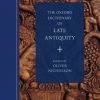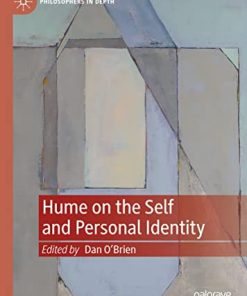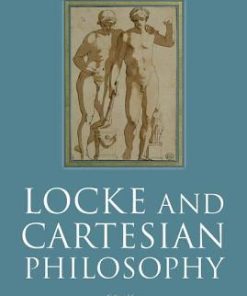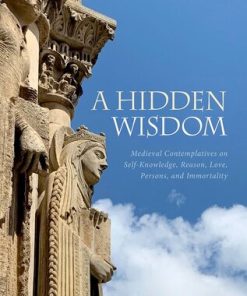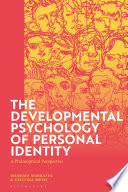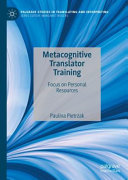Locke on Persons and Personal Identity 1st edition by Ruth Boeker 0192585967 9780192585967
$50.00 Original price was: $50.00.$25.00Current price is: $25.00.
Locke on Persons and Personal Identity 1st edition by Ruth Boeker – Ebook PDF Instant Download/DeliveryISBN: 0192585967, 9780192585967
Full download Locke on Persons and Personal Identity 1st edition after payment.
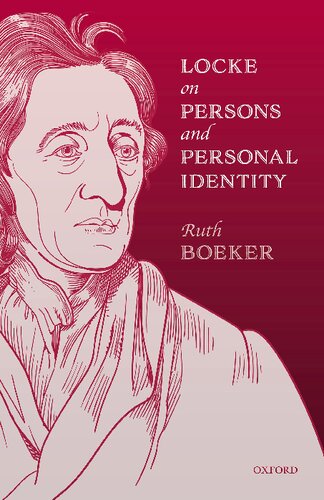
Product details:
ISBN-10 : 0192585967
ISBN-13 : 9780192585967
Author: Ruth Boeker
Ruth Boeker offers a new perspective on Locke’s account of persons and personal identity by considering it within the context of his broader philosophical project and the philosophical debates of his day. Her interpretation emphasizes the importance of the moral and religious dimensions of his view. By taking seriously Locke’s general approach to questions of identity, Boeker shows that we should consider his account of personhood separately from his account of personal identity over time. On this basis, she argues that Locke endorses a moral account of personhood, according to which persons are subjects of accountability, and that his particular thinking about moral accountability explains why he regards sameness of consciousness as necessary for personal identity over time. In contrast to some neo-Lockean views about personal identity, Boeker argues that Locke’s account of personal identity is not psychological per se, but rather his underlying moral, religious, metaphysical, and epistemic background beliefs are relevant for understanding why he argues for a consciousness-based account of personal identity. Taking his underlying background beliefs into consideration not only sheds light on why many of his early critics do not adopt Locke’s view, but also shows why his view cannot be as easily dismissed as some of his critics assume
Locke on Persons and Personal Identity 1st Table of contents:
1. Introduction
1.1 Locke’s Innovative Approach to Debates about Persons and Personal Identity
1.2 Aims and Scope of the Book
1.3 Summary of Chapters
2. Locke’s Kind-dependent Approach to Identity
2.1 The Principium Individuationis
2.2 Identity
2.3 Identity and Individuation
3. Problems with Other Interpretations of Locke’s Account of Identity
3.1 Relative Identity, Coincidence, and Absolute Identity
3.2 Human Beings, Persons, and Locke’s Metaphysical Agnosticism
3.3 Different Senses of Distinctness
3.4 Lessons from the Controversy
3.5 Other Interpretive Options
4. Moral Personhood and Personal Identity
4.1 Locke’s Moral Account of Personhood
4.2 From Personhood to Personal Identity
4.3 Further Reflections on the Moral Dimension
5. Consciousness and Same Consciousness
5.1 Locke on Consciousness
5.2 Locke on Sameness of Consciousness
6. Circularity and Insufficiency Worries
6.1 Different Versions of Circularity
6.2 Butler’s Circularity Objection
6.3 Insufficiency Worries
7. Locke’s Response to the Problems of his Predecessors
7.1 Locke’s Predecessors
7.2 Epistemological Problems
7.3 Materialism and the Afterlife
7.4 Cartesian Views of the Soul
7.5 Non-Cartesian Immaterial Views of the Soul
7.6 Human Beings as Unions of Immaterial Souls and Material Bodies
7.7 Locke’s Response
8. Personal Identity, Transitivity, and Divine Justice
8.1 The Traditional Transitivity Objection
8.2 Non-transitive Interpretations
8.3 The Religious Context
8.4 Consciousness and Transitivity
8.5 Divine Justice and Repentance
9. Locke’s Underlying Background Beliefs
10. Locke and his Early Critics and Defenders: Metaphysical and Epistemic Differences
10.1 Locke’s Early Critics and Defenders on Perpetually Thinking Souls
10.2 Locke’s Early Critics and Defenders on the Thinking Matter Hypothesis
10.3 Final Reflections on Metaphysical and Epistemic Differences
11. Locke and his Early Critics and Defenders: Moral and Religious Differences
11.1 Criticism of Locke’s Psychological Approach to Personal Identity
11.2 Moral Personhood
People also search for Locke on Persons and Personal Identity 1st:
locke on personal identity
locke on personal identity sparknotes
locke’s personal identity theory
locke personal identity summary
personal identity locke holds
Tags: Persons, Personal Identity, Ruth Boeker, philosophical, accountability explains
You may also like…
Relationships & Lifestyle - Personal Growth & Inspiration
Romance - Contemporary Romance
Politics & Philosophy - Anthropology
Psychology - Clinical Psychology
Politics & Philosophy - General & Miscellaneous Philosophy
A Hidden Wisdom: Medieval Contemplatives on Self-Knowledge, Reason, Love, Persons, and Immortality
Politics & Philosophy - Anthropology
What Matters in Survival: Personal Identity and other Possibilities 1st Edition
Psychology - Developmental Psychology
The Developmental Psychology of Personal Identity Massimo Marraffa
Business & Economics - Human Resources
Metacognitive Translator Training: Focus on Personal Resources 1st edition


